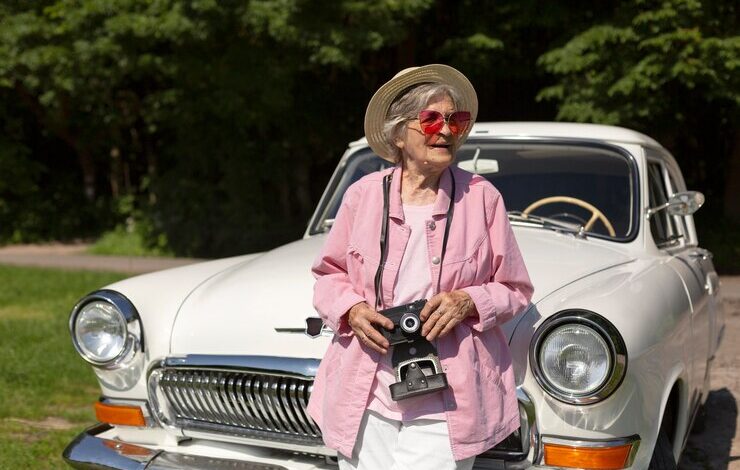https://guia-automovil.com/2019/07/31/autos-clasicos

Classic cars are more than just machines; they are timeless art pieces that echo the past. They offer a glimpse into cultures and societies long gone, reminding us of the automotive industry’s enduring legacy. For enthusiasts and collectors alike, these vehicles are treasured for their historical significance, stunning designs, and unique charm.
The Charm of Classic Cars
Classic cars possess an allure that transcends generations. Defined generally as vehicles over 20 years old, they capture the essence of bygone eras. These cars are marvels of craftsmanship, showcasing the ingenuity and artistry of their time. Their appeal lies not just in their aesthetics but in the stories they tell—a narrative of innovation, style, and identity.
For many, owning a classic car is akin to holding a piece of history. Each model reflects the cultural and technological milestones of its era. From the roaring engines of the 1920s roadsters to the sleek lines of 1960s muscle cars, classic cars embody the spirit of their time. This blend of nostalgia and fascination keeps car aficionados and collectors entranced.
Classic cars are also cultural icons. Their appearances in films, music, and literature cement their place in popular culture. Vehicles like the Ford Mustang or the Aston Martin DB5 are recognized worldwide, known as much for their design as for their cinematic cameos. This cultural resonance further elevates their status beyond mere transportation.
Tracing the Evolution of Classic Cars
The history of classic cars is rich and varied, tracing the development of the automotive industry itself. The early 20th century marked the dawn of the classic car era, with manufacturers like Ford, Rolls-Royce, and Cadillac setting the stage. Iconic models like the Ford Model T revolutionized transportation, making cars accessible to the masses.
The 1930s and 1940s saw the rise of luxury brands, with vehicles from Aston Martin and Bugatti epitomizing elegance and performance. Wartime innovations propelled further advancements in technology and design, influencing post-war automobiles. By the 1950s, the automotive landscape was defined by prosperity and competition, leading to the creation of enduring classics like the Chevrolet Bel Air and the Porsche 356.
The 1960s ushered in the era of muscle cars, with manufacturers focusing on power and speed. Models such as the Chevrolet Camaro and the Dodge Charger became symbols of freedom and rebellion. This period also saw European brands like Ferrari and Jaguar gaining prominence, setting new standards for performance and design.
Owning a Classic Car
Owning a classic car is a unique experience, offering both rewards and challenges. For many enthusiasts, the joy of driving a piece of history is unmatched. The tactile feel of the steering wheel, the rumble of the engine, and the distinctive smell of old leather and gasoline create an unparalleled driving experience.
However, maintaining a classic car requires dedication and care. Older vehicles demand more attention than modern counterparts, necessitating regular maintenance and specialized knowledge. Restoration projects can be rewarding but time-consuming, often requiring a keen eye for detail and patience. Owners must also consider insurance options tailored to classic cars, which account for their value and uniqueness.
Despite these challenges, owning a classic car can be immensely fulfilling. The sense of community among classic car enthusiasts provides a network of support, advice, and camaraderie. Car shows, club meetings, and online forums offer opportunities for sharing experiences, resources, and information.
Navigating the Classic Car Market
The market for classic cars is dynamic and diverse, appealing to collectors, investors, and enthusiasts alike. Interest in these vehicles has surged over the past few decades, with certain models fetching high prices at auctions. Factors such as rarity, condition, and provenance influence a car’s value, making the market both exciting and unpredictable.
Collectors often seek out specific models based on personal preferences or investment potential. Some favor the elegance of vintage European sports cars, while others are drawn to the raw power of American muscle cars. Trends in the market can shift rapidly, influenced by cultural factors, economic conditions, and technological advancements.
For those looking to buy a classic car, research is paramount. Understanding market trends, values, and the vehicle’s history can help buyers make informed decisions. Networking with fellow enthusiasts and consulting experts can provide valuable insights into the world of classic car collecting.
Connecting Through Events and Communities
Classic car events and communities play a crucial role in fostering connections among enthusiasts. Car shows, rallies, and auctions provide platforms for showcasing vehicles, exchanging knowledge, and sharing passions. These gatherings celebrate the history, culture, and craftsmanship of classic cars.
Events like the Pebble Beach Concours d’Elegance and the Goodwood Festival of Speed attract enthusiasts from around the globe. These prestigious gatherings showcase some of the finest classic cars, offering a feast for the senses with their stunning displays and thrilling races. Attending such events allows enthusiasts to immerse themselves in the vibrant world of classic cars.
Local clubs and online communities also provide spaces for enthusiasts to connect. These groups offer resources, advice, and camaraderie, enabling members to share restoration tips, find rare parts, and organize meetups. The sense of belonging and shared passion reinforces the enduring appeal of classic cars.
Looking Ahead to the Future of Classic Cars
The future of classic cars is both promising and uncertain, shaped by evolving technologies and environmental considerations. While the rise of electric vehicles and autonomous driving poses challenges, it also offers opportunities for innovation in the preservation and restoration of classic cars.
Many enthusiasts and organizations are exploring ways to integrate modern technologies into classic vehicles without compromising their authenticity. Electric conversions and advanced materials offer possibilities for enhancing performance and sustainability. These innovations ensure that classic cars remain relevant and valuable in a rapidly changing world.
Classic cars continue to hold a special place in the automotive industry, representing a bridge between the past and the future. Their timeless appeal and cultural significance ensure their continued relevance, captivating new generations of enthusiasts and collectors.
The Timeless Appeal of Classic Cars
Classic cars are more than just vehicles; they are cultural artifacts that transcend time and space. Their enduring appeal lies in their ability to evoke nostalgia, inspire admiration, and connect people across generations. From their storied histories to their vibrant communities, classic cars offer a unique and enriching experience.




